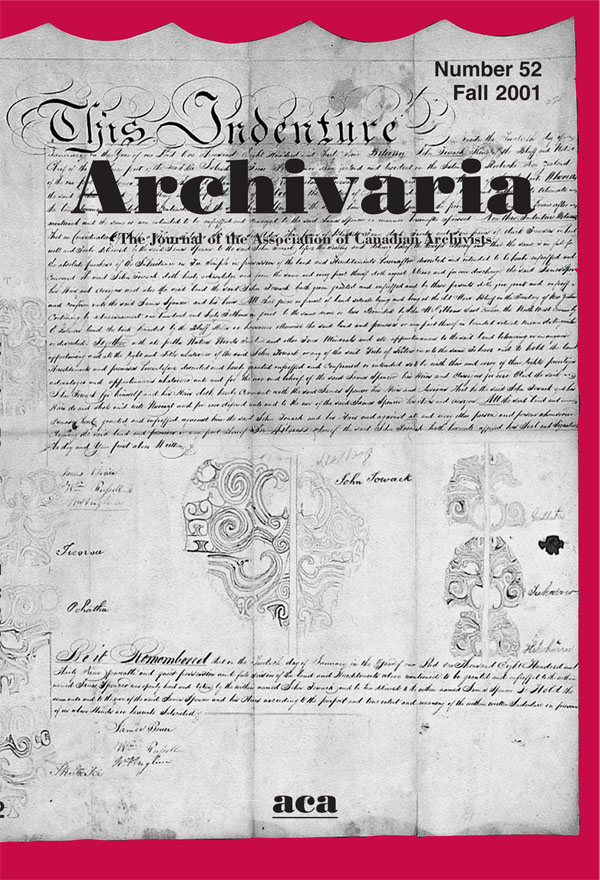"Our Own Identity, Our Own Taonga, Our Own Self Coming Back": Indigenous Voices in New Zealand Record-Keeping
Abstract
Indigenous people's perspectives present strong challenges to records keepers in many parts of the world. In New Zealand, as in Canada, indigenous people have used the information held in archives to reassert their rights and reclaim the past. This article provides a case study of the rights and interests of New Zealand's indigenous people, the Maori, in archives. Maori perspectives on archives are explored through first-hand accounts and analysis of developments in New Zealand archives, museum, and library environments towards the implementation of "biculturalism." It is argued that the Maori impact on record-keeping falls along a spectrum from reconnecting Maori with cultural information held in written records, to reclaiming control over management of these resources, to calling for records' repatriation to their cultural owners.
Authors of manuscripts accepted for publication retain copyright in their work. They are required to sign the Agreement on Authors' Rights and Responsibilities that permits Archivaria to publish and disseminate the work in print and electronically. In the same agreement, authors are required to confirm that "the material submitted for publication in Archivaria, both in its paper and electronic versions, including reproductions of other works (e.g. photographs, maps, etc.) does not infringe upon any existing copyright." Authors of manuscripts accepted for publication retain copyright in their work and are able to publish their articles in institutional repositories or elsewhere as long as the piece is posted after its original appearance on archivaria.ca. Any reproduction within one year following the date of this agreement requires the permission of the General Editor.





